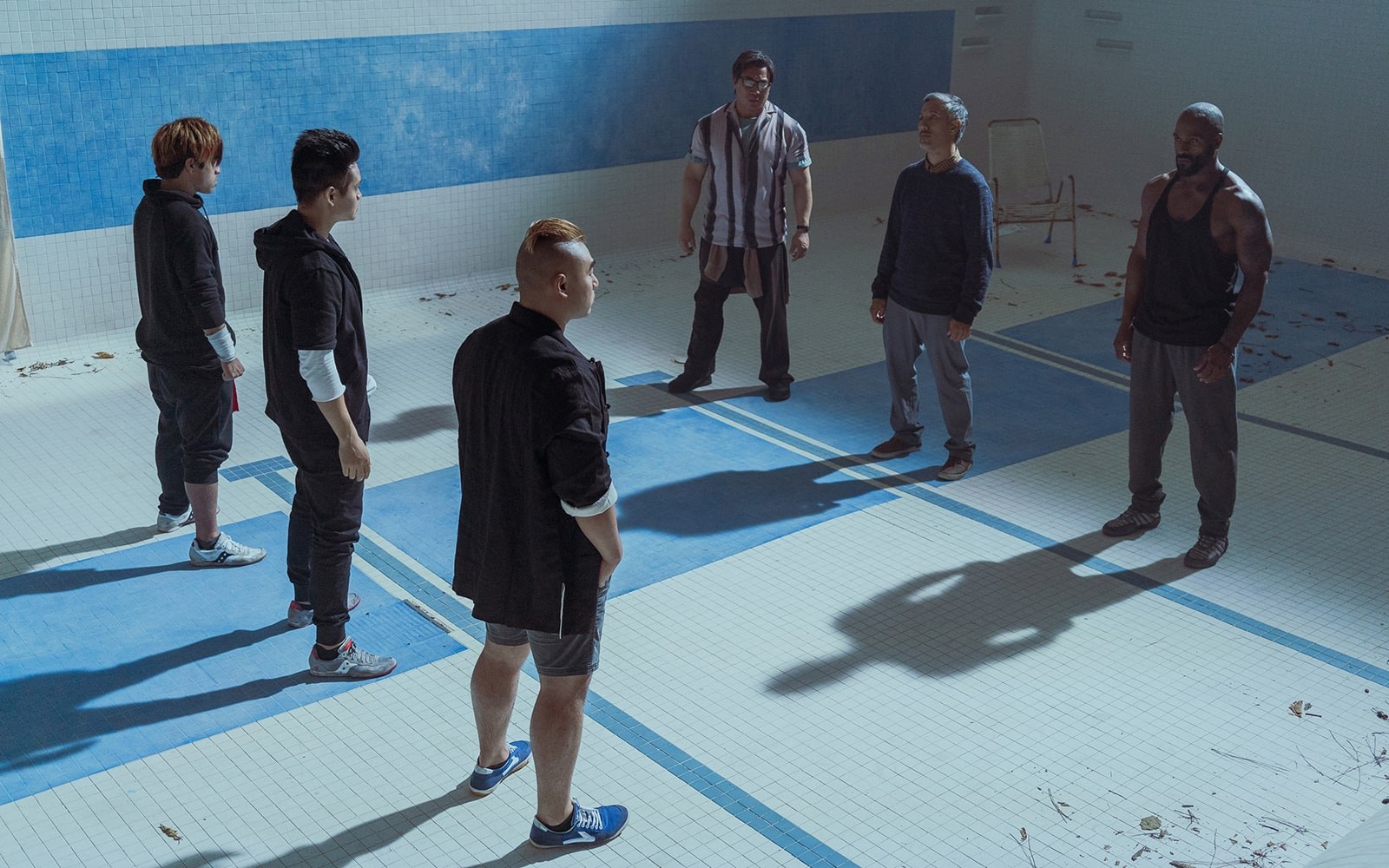The Paper Tigers by Tran Quoc Bao (Review)

When most people hear the term “martial arts comedy,” they probably think of a Jackie Chan or Stephen Chow movie, like Police Story or Shaolin Soccer. (Unfortunately, the term might also bring to mind dreck like Beverly Hills Ninja or — heaven forbid — Kung Pow! Enter the Fist.) But Tran Quoc Bao’s The Paper Tigers feels like a true martial arts comedy. Yes, fists and feet a-plenty fly throughout the film, but far from a send-up or homage to martial arts cinema, The Paper Tigers is squarely centered on the characters’ humor and pathos — which makes it all the more enjoyable.
As teens, Danny, Hing, and Jim were renowned as “The Three Tigers,” martial arts prodigies who were the only students of kung fu master Sifu Cheung. Thirty years later, though, the Tigers have all gone their separate ways. Danny is a divorced dad trying — and failing — to balance his job and his son, Hing is partially handicapped on workers comp, and Jim is teaching MMA at the local gym. But when their sifu dies under circumstances that grow increasingly mysterious and sinister, the Tigers must set aside old grudges and relearn some long-forgotten skills in order to find the truth.
First up, let’s get the most important part out of way. The Paper Tigers is funny. Really funny. The three leads — Alain Uy, Ron Yuan, and Mykel Shannon Jenkins — have a wonderful chemistry, which definitely helps with the jokes (including some excellent pratfalls and physical comedy, particularly from Yuan and his knee brace). That chemistry, however, also helps with the pathos of their broken brotherhood. Perhaps wisely, the movie doesn’t belabor any of this — it’s never overly grim or melodramatic — but it’s clear that there’s some pain and betrayal that needs to be dealt with if they’re going to avenge their master.
The Paper Tigers also raises questions concerning the relevance of kung fu in the modern world. Does it really make sense in 21st century Seattle to settle grudges and matters of honor with a duel? And if your kid is constantly getting beat up at school, do you teach him kung fu, or teach him how to run away and find a teacher? Again, wisely, The Paper Tigers doesn’t dwell too long or too heavily on such questions — a deconstruction of the martial arts genre this most certainly is not — but it does add some nice tension to the Tigers’ trials and tribulations.
Many of the faces on camera will probably be unfamiliar to most viewers, though some might recognize Roger Yuan, who plays Sifu Cheung, as the main villain from Jackie Chan’s Shanghai Noon or the Fiendish Dr. Wu from Black Dynamite. As for myself, I only learned about The Paper Tigers from following Gui DaSilva-Greene on social media; DaSilva-Greene, who plays the younger Jim in the film’s flashbacks, is a regular on Corridor Crew’s “Stuntmen React” videos (which are regular viewing here at my house). Also, Matthew Page (Enter the Dojo) deserves a special shoutout; he plays a former victim of the Tigers’ youthful bullying who is now a sifu and kung fu master in his own right, and acts way more Chinese than everyone else by way of compensation. In a lesser film, his character might be a gimmick, but here, he’s a bit more than that (while still being pretty darn funny).
The Paper Tigers is Bao Tran’s first feature length film (he also wrote the script) and, put simply, it’s a delight. (It’s also a testament to his perseverance; he worked on the film for a decade while resisting Hollywood studio demands that would’ve resulted in a far less interesting film.) Fans of the aforementioned martial arts comedies will almost certainly love it; Ken Quitugua’s action direction is definitely a nod to Chan’s work. But just as a story of middle-age, friendship, brotherhood, and the debts that one owes the past — albeit with kung fu assassins thrown in for good measure — The Paper Tigers is a true indie gem that deserves every single accolade it receives.
